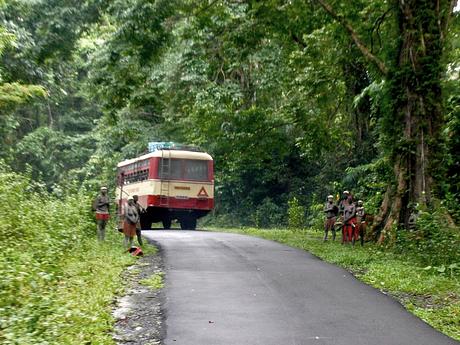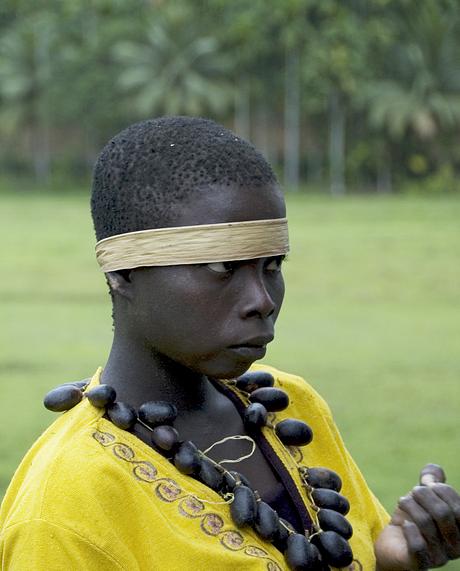Thousands join travel boycott of India's Andaman Islands
May 23, 2013
 © Ariberto De Blasoni/Survival
© Ariberto De Blasoni/SurvivalThis page was last updated in 2013 and may contain language which is now outdated.
Just weeks after Survival launched a tourism boycott of India’s Andaman Islands to stop the degrading ‘human safaris’ to the Jarawa tribe, the campaign has been gaining traction as travel companies join the boycott and thousands of people pledge not to visit the islands.
Following worldwide media coverage, with articles appearing in The Hindu in India, The Telegraph in the UK, International Business Times and the activism site Take Part in America, amongst many others, over two thousand people have pledged not to visit the islands until the tours are stopped.
Travelpickr, a global company based in Canada and India, and Spanish company Orixà Viatges are the first operators to withdraw from offering tours to the Andamans, and Survival is lobbying many more to join the boycott.
René Trescases, the head of Travelpickr, told Survival, ‘At Travelpickr we were appalled to learn about the ‘human safaris’ to the Jarawa and have now withdrawn over forty tours to the Andaman Islands. We hope that the local administration will act quickly to stop this disgraceful practice, or it risks damaging the islands’ reputation as a popular travel destination.’
Spanish travel agency Orixà Viatges said, ‘We have removed the Andaman Islands from our list of tourist destinations. At Orixà Viatges we don’t understand this kind of tourism – we believe that people and cultures should be treated with respect, rather than used by unscrupulous people making a profit out of ‘human safaris’.’

Hundreds of tourists, the majority from India, Israel, America and Britain, travel along a road which runs through the Jarawa reserve on a daily basis. Many hope to spot a member of the 400-strong Jarawa tribe, whose ancestors are thought to have been part of the first human migration out of Africa, treating them like animals in a zoo.
The ‘human safaris’ have been condemned by the United Nations and India’s Minister for Tribal Affairs, who called them ‘disgraceful’ and ‘an embarrassment’, and thousands of letters have been sent to the Indian government asking for the tours to be stopped.
But despite an Indian Supreme Court ruling in January 2013 which temporarily stopped tourists from traveling along the road, the Andaman administration has done everything in its means to keep the road open to tourists – even changing its own rules on a buffer zone to enable the ‘human safaris’ to continue.
Survival’s Director Stephen Corry said today, ‘In travelers’ eyes, the Andamans are increasingly becoming synonymous with ‘human safaris’. The islands’ reputation has undoubtedly been severely damaged by the scandal. It’s surprising that the local government is so reluctant to provide tourists and locals with an alternative sea route, given that it’s far quicker and cheaper to travel by boat.’
Survival will continue to call for a full boycott of tourism to the Andaman Islands until its demands of removing tourists from the road through the Jarawa reserve are met.




